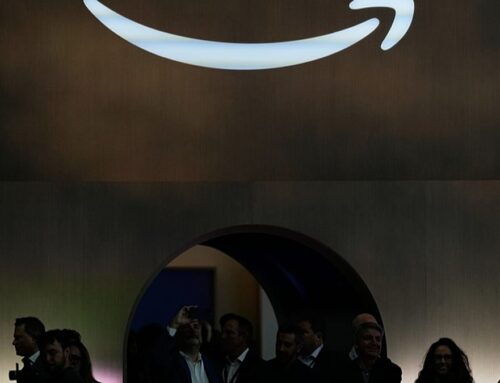Littleproud says the world is ‘re-pivoting’ on net zero commitments – but is that just spi
November 3, 2025
After months of threatening, the junior Coalition partner has finally withdrawn its support for the national target of reaching net zero greenhouse gas emissions by 2050.
“We are pegging ourselves to what the rest of the world does,” the Nationals leader, David Littleproud, claimed on Monday.
The Nationals argue Australians are already feeling worsening financial pain from “net zero” and the government is imposing this on the country as the rest of the world is walking away from the commitment.
Neither of these things is true.
There is also a rising chorus of Liberal MPs who would like to see their party follow the Nationals and abandon the net zero target.
If adopted as Coalition policy, it means Australia’s alternative government would go to the next election with positions that would put Australia in breach of the commitments it made when it signed up to the 2015 Paris climate agreement.
Dropping net zero
What is it exactly that the Nationals have dropped?
Until the weekend, the Nationals had backed the Coalition policy introduced by the Morrison government in 2021 – that Australia’s emissions would be “net zero” by 2050.
That is, when all sources of emissions such as burning fossil fuels are added up and the ways emissions are drawn out of the atmosphere, such as by growing trees, are taken away, the final number is zero.
Because there are technical and physical limits on the amount of emissions that can be captured, reaching net zero by 2050 will require a fundamental shift away from the fossil fuel energy that is driving the climate crisis.
Sign up to get climate and environment editor Adam Morton’s Clear Air column as a free newsletter
The Nationals have endorsed only one broad emissions policy that could help with that – allowing the use of nuclear energy.
But there are no longer any specifics on how the national ban on that generation technology could be lifted, or where it would be deployed, or what type of nuclear technology would be used, or who would pay for it.
It means that, in reality, the Nationals’ previous support for net zero emissions was purely rhetorical – it backed no policies to get there. Its decision to abandon the target just means the pretence has been dropped.
Jobs, costs and net zero
Littleproud said his party had come to its decision because of “lived experience” – pointing to rising electricity prices. But there is strong evidence that most, if not all, of the increase in costs has nothing to do with the rise in renewable energy.
In recent months, Littleproud and other Nationals including Senator Matt Canavan have highlighted the work of Net Zero Australia, a collaboration between academics from the University of Queensland, University of Melbourne and Princeton University. They modelled the economics of different ways to reach net zero.
Citing this work, Littleproud told the ABC on Monday: “The cost of net zero by 2050 will be $9tn … That will put things like Medicare and NDIS at risk.”
But that is not what the Net Zero Australia modelling found. It estimated the amount of capital investment that would be needed in a range of technologies to meet that goal, and found it could be between $7tn and $9tn from now until 2060.
While the Nationals paint this as a shocking cost, others see this as an opportunity to build new industries and drive the economy.
Littleproud also claimed reaching net zero emissions would cost jobs. But the Net Zero Australia modelling found an extra 550,000 jobs would be created in the energy sector if the country aimed for net zero emissions.
On emissions, Littleproud revisited the argument that because Australia only emits about 1.1% of global emissions, the country should not “streak ahead” of others. He said Australia “should do our fair share” but not what that “fair share” would be.
He also said there was a “better, cheaper and fairer” way of cutting emissions, but not what that was, either.
It seems reasonable to assume that whatever it is, it includes a lot less renewable energy than is now planned, and the introduction of one of the most expensive forms of energy – nuclear – that experts say would take decades to develop.
Is the world pivoting?
“The rest of the world understand a lot of the low-hanging fruit has been done and it is now re-pivoting,” Littleproud claimed.
Is that true? Not really.
It’s true there has been a big change in the US, with Donald Trump axing renewable energy plans and withdrawing from international climate processes, but it is also true that 69% of national governments have net zero pledges. The Net Zero Tracker says more than two-thirds of these are embedded in law or formal policy.
One of the few specific arguments that Littleproud made was to claim that the British prime minister, Keir Starmer, was reconsidering 8 gigawatts of renewable energy “because of the energy costs UK residents and industry are feeling”.
In fact, British experts say 8 gigawatts of new renewable energy is needed to meet the country’s targets. How much of that 8 gigawatts gets commissioned by Starmer is yet to be decided.
Like much of what the Nationals have argued around the net zero target, the facts have become skewed.
Search
RECENT PRESS RELEASES
Related Post



